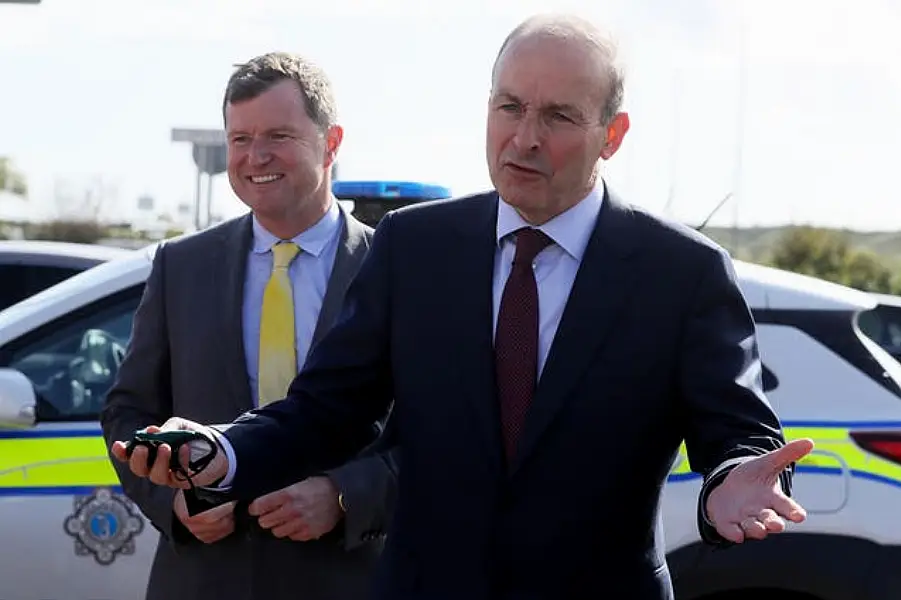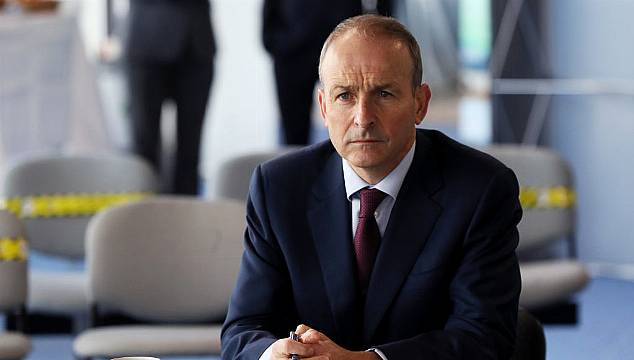Sláintecare officials who resigned from the health service reform programme raised concerns over structure, accountability and visibility, the Taoiseach has said.
Micheál Martin was speaking after the beleaguered initiative aimed at introducing universal healthcare in Ireland was hit with a third high-profile resignation in weeks.
Gastroenterologist Prof Anthony O’Connor confirmed he had left the Sláintecare Implementation Advisory Council (SIAC) on Thursday, following in the footsteps of chairman Dr Tom Keane and executive director Laura Magahy.

Mr Martin said: “I met with Laura Magahy and Tom Keane last week. Their issue seems to be more on the structural side, in terms of the accountability and the visibility.
“And that the structure that had been created, as a unit within the Department of Health, was not optimal in terms of dealing with both the department of health and critically, the HSE.
“They wanted more visibility over the delivery.”
The Taoiseach insisted the Government was committed to delivering the “key principles” of Sláintecare.
He said: “I think the most fundamental thing on the programme is delivery. In the last budget, we allocated €1.2 billion specifically for Sláintecare programmes and projects.
“I think that has (delivered), in terms of increased bed capacity, in terms of increased diagnostics for GPs, and a whole range of initiatives.”
He added: “We’re very determined as a Government to deliver the key principles of Sláintecare. The next big agenda item will be the elective facilities in terms of Cork, Galway, and Dublin.”
He continued: “In terms of a whole range of other issues under Sláintecare, there has been significant developments which was acknowledged by Laura and Tom.
“But their key view is in terms of the structural issues, which we will now address.”
In a post on Twitter, Prof O’Connor said he would not be commenting publicly on the reasons for his departure.

His resignation came a day after he, along with other members of SIAC, attended a meeting with HSE chief executive Paul Reid and secretary general at the department of health, Robert Watt.
It is understood Prof O’Connor notified Health Minister Stephen Donnelly of his resignation in writing.
Sinn Féin health spokesman David Cullinane said on Twitter: “More Sláintecare resignations.
“Another vote of no confidence in the ability of the Government to deliver change in health.
“The notion that there is consensus in healthcare is broken by failure to deliver reform & a lack of political will to bring about change.”
The reform programme aimed to move Ireland’s health service from a two-tier system of public and private care, to a single-tier system, offering universal access to healthcare.
Last week, Paul Reid insisted there was “absolute consensus” about reforming the health service.

Mr Reid rejected accusations of “institutional resistance” which is threatening the implementation of Sláintecare.
He said everyone within the health services recognised the need for a “massive” overhaul.
The recent resignations have sparked concern about the drive to introduce universal healthcare.
Mr Reid told RTÉ that he took up the role of chief executive two years ago with the “absolute intention and passion” of driving the implementation of Sláintecare.
“If you look at what’s happened in the past 18 months, we certainly have been dealing with a pandemic, four waves of Covid and sometimes 2,000 people in hospital, 220 people in ICU,” he added.
“What I have seen and experienced, and I think the public should take great confidence in that even throughout that whole period, many aspects of Sláintecare have been driven home to the benefit of public and patients, which is what it’s all about.
“In simple terms, Sláintecare was about many policy issues around universal health care, public and private public hospitals. It was also about reforming the operational aspects of it, and we have taken that opportunity in Covid.”







